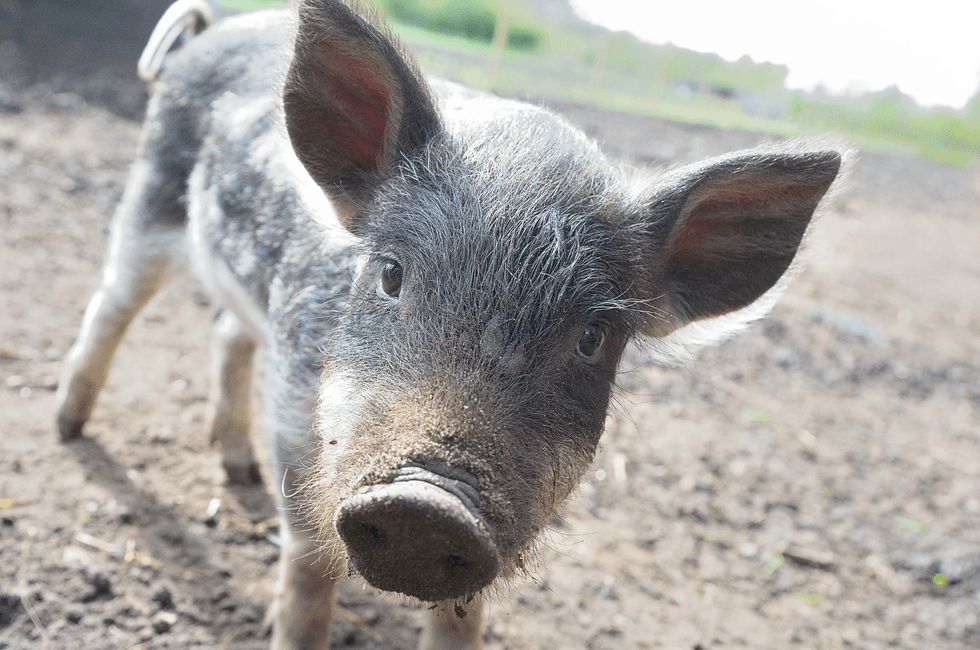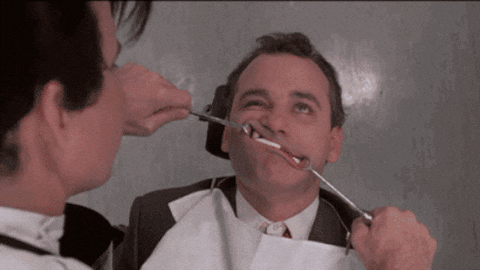As millions of tourists have descended upon Brazil this past month for the single largest sporting event on the planet, human rights organizations have been mobilizing for their own watershed moment: the explosion of sex tourism within the World Cup host nation. If you take what the U.S. State Department says as gospel, even before the World Cup 250,000 children were selling sex across the country. Brazil’s National Forum for the Prevention of Child Labor estimates that number at closer to half a million. It stands to reason that those numbers would skyrocket as those millions of tourists open their wallets to the tune of $2.97 billion.
The causal relationship between sports’ mega-events, increased sex tourism, and the vulnerability of children is ingrained as conventional wisdom around the globe. As a result, we are largely comforted when Brazil’s Human Rights Secretariat funds a $4 million campaign to combat child prostitution during the World Cup; or when nuns backed by the Vatican are tasked with passing out fliers on how to spot sex trafficking; or when Brazilian defender David Luiz asks British Airways in flight passengers to “protect our kids” as part of the “It’s a Penalty” campaign coordinated in tandem with Britain’s National Crime Agency; or when a large, walk-in street installation (the “GIFT box,” a project of the UN Global Initiative to Fight Human Trafficking and the nongovernmental organization STOP THE TRAFFIK) filled with images of women, men and children posing against headlines that read “I was trafficked!” is installed in the red light district of Vila Mimosa in Rio de Janeiro.
[quote position="left" is_quote="true"]The issues of trafficking and child exploitation related to mega-events become excuses to justify police behavior and repression.[/quote]
Despite goodwill efforts to protect children from sex tourism associated with international sporting events, there remains scant, if any, evidence that the causal relationship actually exists. According to a report from the International Organisation for Migration, Germany was able to connect just five trafficking cases to World Cup tourism in 2006 — about .01 percent of the 40,000 estimated sex trafficking victims. Greece was not able to connect any during the 2004 Olympics, nor could South Africa during the World Cup in 2010. London was similarly unsuccessful during the Olympics in 2012, but not for lack of trying.
“In spite of hundreds of raids on sex workers in a six-month campaign by government departments, specialist agencies and every police force in the country,” The Guardian journalist Nick Davies wrote, “The U.K.’s biggest ever investigation of sex trafficking failed to find a single person who had forced anybody into prostitution.”
Even when confronted with all of the data debunking the relationship between mega-sporting events with spikes in sex trafficking, it’s still easy to imagine a conscientious someone wondering whether there’s ever any harm in fighting the scourge that is sex trafficking — even in contexts where its proliferation is dubious. That might be a valid position to take were it not for a disturbing set of data that emerges when looking at recent preparations for these events — specifically, the violent crackdown on sex workers.
A 2011 report by the Global Alliance Against Traffic in Women on the World Cups, Olympics and Super Bowls of the previous decade often showed an increase police violence towards the host city’s sex workers, in the name of “cleaning things up.” In Berlin in 2006, police raided 71 brothels during the World Cup, but “found no evidence of trafficking [and] deported ten women.” In South Africa four years later, “Police contact with sex work … included systematic police brutality, corruption and harassment, and health care contact with sex workers generally decreased during the World Cup period, at a time where [it] should have expanded.” And according to sex worker health advocate Georgina Perry, two years ago in London, the police diverted a million dollars in funding designated to fighting sex trafficking to instead finance hundreds of brothel raids.
“This is what happens when a fear, panic, myth takes on a life of its own,” says sociologist Laura Augustin. “Evidence that there is cause for such fear is simply irrelevant. If the police haven’t found many women in chains, the victims must be too well hidden, which justifies further money for more intense policing.”
Nowhere is the crackdown more pronounced than in Rio de Janeiro, where there is a long history of police repression of sex workers in advance of important visits from tourists. Rio shuttered 17 sex venues downtown and 18 in the ritzy South Zone in the past few years, representing about 20 percent of the sex venues in those neighborhoods, according to data gathered by Rio anthropologists Thaddeus Blanchette and Ana Paula da Silva. And counts of sex workers in Copacabana are down to about half of what they were in 2005.
The crackdown took on new dimensions with the brothel raids of Niterói, a city outside of Rio, where police illegally arrested 11 sex workers and sent them to a maximum-security prison on April 1 of this year. A second raid on May 23 took a violent turn when more than 100 sex workers in a rapidly gentrifying downtown district were illegally arrested, and subjected to assault, robbery, and forced oral sex. According to members of Rio de Janeiro’s Observatory of Prostitution who were present at the police precinct the day of the raid, one of the police officers admitted that he did not have judicial authorization to arrest the prostitutes, at which point they were immediately released but, as of July 3, have still not been allowed to return to the building they lived and worked in.
“What happened in Niterói is an example of what police fighting ‘sexual exploitation’ looks like, but it’s not because of World Cup,” says Laura Murray, a researcher, documentarian and Executive Secretary for sex worker rights organization DAVIDA:
The issues of trafficking and child exploitation related to mega-events become excuses to justify police behavior and repression that is NOT new, it simply now has an expanded support base through those who have jumped on the mega-event clean-up bandwagon.
Prior to the Niterói repression, there were many others. The sex worker movement in Brazil was born out of similar police violence. It is an example of how deep the stigma against prostitution goes, and how sex workers are not treated as workers, women, mothers, wives, citizens deserving of rights by Brazilian police.
The raids not only went largely ignored by the Brazilian media, but also by each of the aforementioned organizations mobilizing to fight sexual violence during the World Cup. As to why they hadn’t denounced the raids, a program officer for Promundo (which launched its World Cup campaign against sexual exploitation three days after 100 sex workers were illegally arrested and assaulted by police in Niterói) responded, “Our organization would be against police violence against sex workers … but we’ve focused on prevention of sexual exploitation of children and adolescents.”
The lone exception was CONATRAP, the Ministry of Justice’s committee against trafficking, which warned:
In Brazil, there’s fear that there will be acts of repression against the prostitution of adults in various host cities. It’s worrying that these actions can be related to projects of urban hygienization, which is inconsistent with the actual democratic state of Brazil and injures the rights of prostitutes, stigmatizing them and making them more vulnerable.
That’s right: Prostitutes have rights in Brazil. Prostitution has never been a crime in the country, where there are as many as 1 million sex workers. Sex tourism, despite President Dilma Rousseff’s recent tweet of discouragement, is also entirely legal, as long as it’s among consenting adults. And according to the 2002 legal code CBO5198-05, sex work is a federally recognized occupation in Brazil with the right to social security benefits.
[quote position="full" is_quote="true"]In Vila Mimosa, sex workers saw a noticeable decline during the first two weeks of the World Cup — what they did find was an increase in journalists looking for evidence of booming business[/quote]
Despite the police crackdowns, the Brazilian sex worker community has remained hopeful throughout this year’s World Cup events. In Rio’s red light district of Vila Mimosa, an association of brothel owners has decorated the corridors of their buildings with Brazilian flags, and at least four brothel owners have done extensive remodeling. Sex workers in São Paulo celebrated the tournament’s June 12 kickoff with a concert and cabaret show. In Belo Horizonte, the Association of Prostitutes in Minas Gerais (APROSMIG) offered English classes, so sex workers would be able to better negotiate with foreigners.
“We’re more prepared than the taxi drivers [for World Cup],” said APROSMIG president Cida Vieira.
Vieira estimates that an additional 2,000 women will have traveled to Belo Horizonte by the end of the World Cup seeking additional work. Given the similar hopes of women in previous mega-sports destinations, one has to wonder how many of them will have found the work they were looking for.
In Vila Mimosa, sex workers saw a noticeable decline during the first two weeks of the World Cup — what they did find was an increase in journalists looking for evidence of booming business. One sex worker who has spent the past decade supporting herself and her family in Vila Mimosa said she couldn’t wait for the World Cup to end, so she can get back to business as usual. According to the Observatory of Prostitution, an extension project of the Federal University of Rio de Janeiro (UFRJ)’s urban ethnography lab that is mapping the World Cup effect across Rio’s sex industry, business is down across all of Rio’s 279 sex venues except for 16, and sex workers are giving accounts of some gringos trying to negotiate 2-for-1 and 3-for-1 discounts, and others turning to violence.
The campaign against sex trafficking during mega sports events have repercussions beyond the lost profits of the nation’s legal sex worker community. In Brazil, it has directed attention from children who are actually suffering physical or sexual abuse. According to data from Brazil’s federal child abuse hotline, DISQUE DENUNCIA, almost one in three (32 percent) of all calls from 2003-10 reported suspicion of sexual violence. But of those calls reporting sexual violence, less than 1 percent reported sex trafficking. In other words, for every potential victim of child sex trafficking in Brazil, there are 500 children suffering some other form of abuse. And all of the funding to keep foreigners from paying for sex with minors and to keep legal sex workers out of plain sight has done absolutely nothing to change that terrible reality.
It should be possible for us to fight on behalf of those who don’t want to be selling sex and to support the rights of sex workers who do. Dispelling the fantastical claims around sex trafficking and mega sports events would be a decent first step.
Julie Ruvolo is a freelance journalist and editor of the Red Light Rio project. She is a research collaborator with Rio’s Observatory of Prostitution, an extension project of the Metropolitan Ethnographic Lab – LeMetro/IFCS at the Federal University of Rio de Janeiro.
Photos courtesy of Julie Ruvolo
CORRECTION: An earlier version of this story attributed a quote to a “spokesperson” for Promundo. The quote is not from a spokesperson, but from a program officer of the organization.
















 Raccoons know how to get around.
Raccoons know how to get around. The dexterity of raccoon hands enables their humanlike escapades.
The dexterity of raccoon hands enables their humanlike escapades. The dexterity of raccoon hands enables their humanlike escapades.
The dexterity of raccoon hands enables their humanlike escapades.
 A car with LED headlightsCanva
A car with LED headlightsCanva




 A collection of toilet paper rollsCanva
A collection of toilet paper rollsCanva A bidet next to a toiletCanva
A bidet next to a toiletCanva A cute pig looks at the cameraCanva
A cute pig looks at the cameraCanva A gif of Bill Murray at the dentist via
A gif of Bill Murray at the dentist via  A woman scrolls on her phoneCanva
A woman scrolls on her phoneCanva
 A confident woman gives a speech in front of a large crowdCanva
A confident woman gives a speech in front of a large crowdCanva